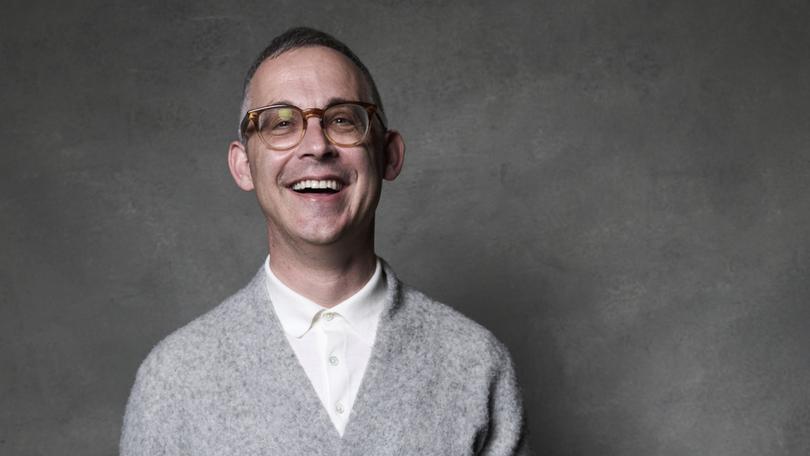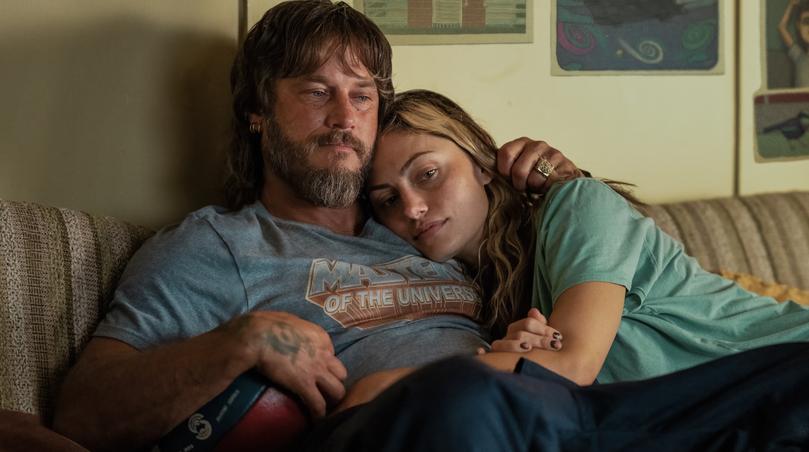Anonymous Content’s David Levine: TV still needs bold ideas
David Levine spent 10 years at HBO before joining one of Hollywood’s hottest production houses. He doesn’t buy into the doomsday prophecies of the industry.

The reports of entertainment’s death have been greatly exaggerated.
All the major Hollywood studios and streaming platforms may have gone or are still going through a period of contraction, but that doesn’t mean you should count them out.
“Anytime someone says it’s the end of something, it’s not true, because there’s always entertainment and there’s always a need for entertainment,” David Levine, the chief creative officer of Anonymous Content, told The Nightly.
Sign up to The Nightly's newsletters.
Get the first look at the digital newspaper, curated daily stories and breaking headlines delivered to your inbox.
By continuing you agree to our Terms and Privacy Policy.Levine is someone who knows the business of film and TV. He worked at HBO for 10 years, shepherding some of the most acclaimed series of this century including Game of Thrones and True Detective, before joining Anonymous, the production company behind the likes of Spotlight, The Revenant, Mr Robot, Dickinson and Boy Swallows Universe.
His years of experience have taught him one thing, the need to keep evolving. If the system changes, you need to adapt to the system while still staying true to your raison d’etre, which for Levine is making shows that captivate, entertain and challenge.

For example, right now, the industry trend is to create shows for the “middle of the market” rather than exclusively chase the prestige banner. But that doesn’t mean, Levine contended, middle-of-the-road.
“You can reach the middle of the market by making the best things because the middle of the market is just saying ‘most people’,” Levine said. “Everyone reduces everything to something and then they get scared. I understand fear, it’s a palpable and recognisable thing. I just don’t feel it.
“I really, really believe that anything is possible. I genuinely believe that if I didn’t make something that you had to watch every second of, then I wasn’t doing my job”
It’s not the assumption that the middle of the market wants middle-of-the-road shows that Levine found patronising. It’s that studios and streamers undervalue what they’re making, or are willing to make anything that’s less than.
If you start with the assumption that audiences are only half paying attention to the screen because they’re also scrolling through Instagram, then you’re never going to aim higher.
“The presumption that is pejorative is that the audience doesn’t want to watch,” he explained. “That’s a pejorative to the actual media we’re in, which is that the audience would rather be doing something while watching.
“Then it’s incumbent upon people to understand why. You have to give them something provocative and deep to watch. You have to give them something wildly entertaining so they don’t pull their eyes away into some other medium.”

Levine was in Melbourne for the FutureVision TV conference, staged by Australians in Film. Over three days of talking with and to local creatives, he immersed himself in an industry he found to be highly ambitious.
Anonymous has worked with local storytellers, including Boy Swallows Universe, Joel Edgerton’s Boy Erased and The Stranger, a crime thriller based on the Daniel Morcombe killing.
“You have to be conscious of the fact that (local markets) exist in a local sphere, and that means you have to adapt yourself to exist in it. This means understanding how Netflix (works) here, but also Disney and Paramount, which are the Americans, but also understand the ABC and Foxtel, and other companies who have a place in the market.”
Levine’s argument is that you always have to understand the conditions in which you’re operating and find that one buyer for what you want to make – because all you need is one person to have to have it.
“There are shows that can be bought by a lot of people, but there are shows that don’t need to be bought by a lot of people because they’re tailored or designed for somebody’s model,” he explained.

Despite the well-published woes facing the industry, including shrinking budgets, fewer deep-pocketed bidders for every new project and just a general air of conservatism, Levine said there will always be room for bold ideas.
Anonymous has recently sold a raft of new projects and has others in development, including a new adaptation of East of Eden with Florence Pugh in the lead, documentaries on Elon Musk and George Orwell and the 10-part TV version of Neuromancer. And the titles are going across a range of platforms including Netflix, Apple and cinemas.
“We’re approaching the market as though it’s still possible, but we’re approaching it as it is,” he said. “There was a year where no scripts got made, and then we take out the couple of scripts that we had that were written and we have the possibility to make a movie.
“It’s basic wisdom. Which is if no one has any movies to make, they must need scripts.”
What’s needed is a little faith, courage and optimism. If you buy into the doomsday prognostications, then you sell yourself short by only bringing safe ideas to the market. If everyone does that, then it’s a self-fulfilling prophecy.
It’s about the balance – give the market what it’s saying it wants, but also push it to accept more.
“I’ll never give that up,” Levine said. “Even if the medium doesn’t want it, I’ll still never give it up. But that doesn’t mean that the company shouldn’t try to do other things that are just meaningful to the buyers.”

